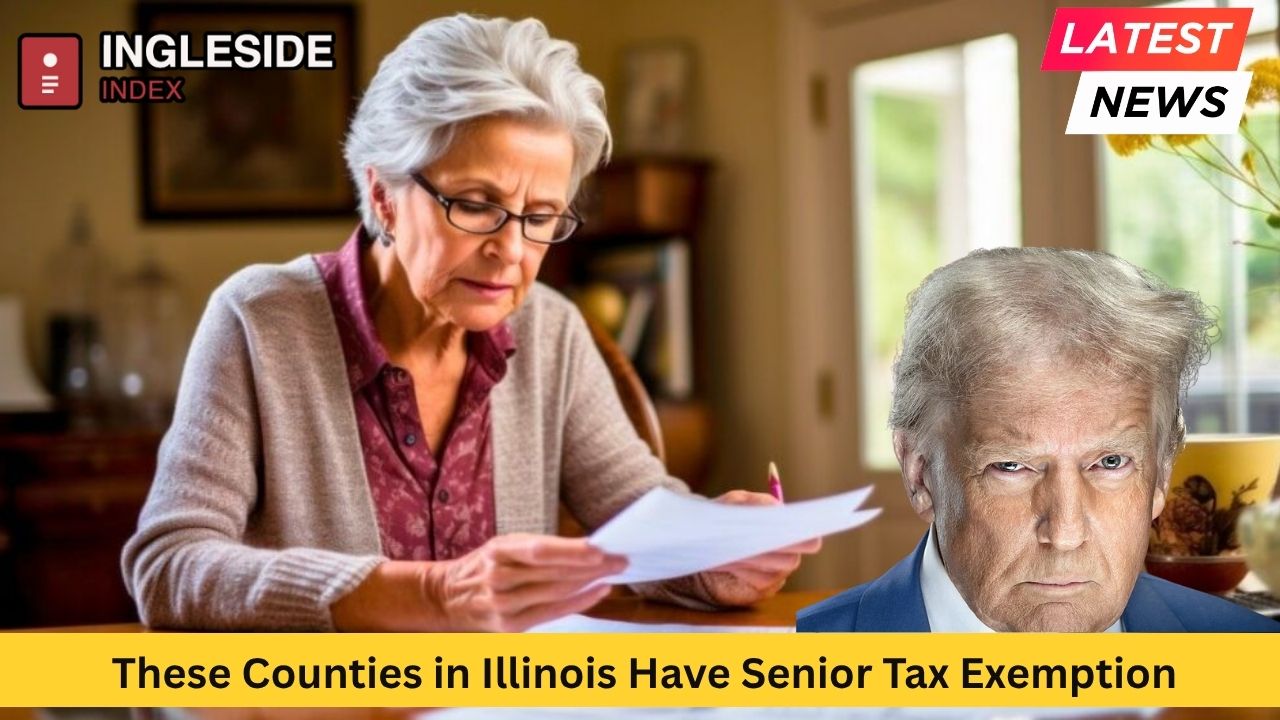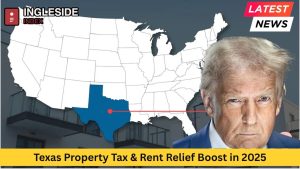Retirement years bring new priorities and challenges. One of the significant concerns for seniors living on a fixed income is the burden of property taxes. Illinois recognizes this and offers a set of property tax breaks specifically for older adults, known as senior tax exemptions. These programs are designed to help seniors remain in their homes and maintain their quality of life throughout the state, from bustling cities like Chicago to small towns in counties such as Rock Island, Lake, and Lee.
This article will provide a comprehensive, in-depth look at which Illinois counties offer senior tax exemptions, how these programs work, their impact, and the distinctive features that make each county’s program unique. Along the way, you’ll find key facts, demographic statistics, and practical insights for senior homeowners across Illinois.
Understanding Senior Tax Exemptions in Illinois
Senior tax exemptions in Illinois typically refer to property tax relief extended to eligible homeowners aged 65 and above. The primary programs available include the Senior Citizens Homestead Exemption, the Senior Citizens Assessment Freeze Exemption, and the Senior Citizens Real Estate Tax Deferral Program. Each program comes with specific qualifications and offers different forms of relief.
-
The Senior Citizens Homestead Exemption reduces a property’s taxable value on the tax rolls, directly lowering property tax bills for qualified seniors.
-
The Senior Citizens Assessment Freeze Exemption (also known as the “Senior Freeze”) allows eligible seniors to freeze the equalized assessed value (EAV) of their property, helping protect them from tax increases due to rising property values.
-
The Senior Citizens Real Estate Tax Deferral Program gives eligible seniors the ability to defer payment of their property taxes until their home is sold or transferred.
How the Senior Citizens Homestead Exemption Works
Statewide, the Senior Citizens Homestead Exemption reduces the equalized assessed value of a qualifying home by up to $8,000 in Cook County and contiguous counties, and by up to $5,000 in all other counties. This reduction can mean hundreds of dollars in annual tax savings, a substantial benefit for seniors on fixed incomes.
-
Eligibility: The homeowner must be 65 years or older, own and occupy the property as their principal residence, and be responsible for paying property taxes.
-
Application Process: Requirements vary by county. Most counties require filing an initial application (commonly Form PTAX-324). Some, like Cook County, require annual forms, while many others now renew the exemption automatically as long as eligibility remains unchanged.
-
Savings: The amount of savings depends on local property tax rates and the reduction in assessable property value.
Key Counties with Senior Tax Exemption
Cook County
Chicago and Cook County are home to the largest number of seniors receiving exemptions in the state, unsurprising given Chicago is Illinois’ biggest city and the third-largest in the country. As of recent years, Cook County has offered an exemption of up to $8,000 off the assessed value. The program is notable for its automatic renewal feature — removing the need for seniors to reapply every year, after the first application, making consistent relief more accessible.
-
Towns and neighborhoods: Evanston, Skokie, Oak Park, Palatine, and suburban communities in addition to the city of Chicago are all part of this program.
-
Additional help: Nonprofits such as PLOWS Council on Aging provide guidance and assistance to Cook County residents who may be unsure how to apply.
Lake County
In Lake County, which includes cities like Waukegan, Highland Park, Libertyville, and Gurnee, the homestead exemption for seniors mirrors Cook County’s $8,000 reduction in assessed value. Applications are managed online, and property owners are required to provide proof of age and residency.
DuPage County
DuPage County has towns such as Naperville, Wheaton, Glen Ellyn, and Elmhurst. Here, the $8,000 exemption is especially significant due to higher property values in some of its suburbs. The DuPage County Assessor’s Office provides clear, accessible documentation and support for applicants.
Kane County
Kane County is the home of Aurora, Elgin, Geneva, and Batavia. Here, eligible seniors also benefit from the exemption; the impact can be considerable, especially in larger homes or those facing rapid value increases.
Will County
Will County covers communities like Joliet, Bolingbrook, and Plainfield. Residents aged 65 and older can apply through the Will County Assessor’s Office and receive the reduction as long as the property is their primary home.
Rock Island County
With cities such as Moline, Rock Island, and East Moline, Rock Island County seniors can claim a $5,000 reduction in the assessed value of their residence. Like other counties outside Cook, the lower exemption amount reflects different local property value patterns.
Lee County
Lee County, located in northern Illinois, offers similar benefits for eligible residents in towns like Dixon and Amboy. The application process is managed by the local Chief County Assessment Office, ensuring small-town seniors have the same access to relief as their urban counterparts.
Other Counties Offering Senior Tax Exemptions
Senior property tax relief is not limited to the largest counties. Across the state, from rural to urban, nearly every county offers some variant of the Senior Citizens Homestead Exemption and the related assessment freeze and tax deferral options. Here are just a few examples:
-
McHenry County: Home to towns such as Woodstock, Crystal Lake, and McHenry.
-
Peoria County: Serving Peoria and surrounding suburbs.
-
Champaign County: Encompassing cities like Champaign and Urbana.
-
Sangamon County: Including Springfield, the state capital.
Most counties mirror the state standard, offering a $5,000 reduction for non-Chicago participants. The process and documentation vary, but the benefits are widespread.
Illinois Senior Population and Exemption Statistics
Illinois is home to a large and growing senior population. As of 2022, Illinois granted over 1.5 million exemptions to residents aged 65 and older—a figure that has steadily increased over the past decades as the population ages. This demographic shift is visible across Chicago, its suburbs, and the more rural regions stretching from Rockford in the north to Carbondale in the south.
The following statistics highlight this impact:
-
The U.S. Census Bureau reported Illinois had approximately 1.57 million residents aged 65 and over benefiting from some form of tax exemption as of 2022.
-
In 2000, that number was just under 900,000; a nearly twofold increase in two decades.
-
Cook County, with the state’s largest suburban and urban senior community, processed hundreds of thousands of senior exemptions annually.
The Senior Citizens Assessment Freeze Homestead Exemption (“Senior Freeze”)
Beyond the standard exemption, Illinois offers a Senior Freeze, giving eligible low-to-moderate income seniors a way to protect themselves against rising property values. The program freezes the property’s equalized assessed value, so even if property value increases, the taxable amount remains constant.
-
Qualification: Seniors aged 65 or older, with household income of $65,000 or less.
-
Availability: Offered in every Illinois county, including populous ones like Cook, Will, and DuPage, as well as smaller counties such as Lee and Whiteside.
-
Impact: Particularly valuable in regions experiencing rapid property appreciation, like Naperville in DuPage County or Highland Park in Lake County.
Senior Citizens Real Estate Tax Deferral Program
Another layer of support comes from the Tax Deferral Program, allowing eligible seniors to defer all or a portion (up to $7,500 annually) of their property tax bill. The deferred amount acts as a low-interest loan, secured by a lien on the property, and is due upon sale or transfer.
-
Eligibility: Seniors aged 65 or over with a total household income of $65,000 or less.
-
Counties Participating: Available in counties statewide upon application.
-
Who Uses It: Seniors in areas like suburban Cook, Will, and downstate counties frequently utilize this program to ease their annual cash-flow needs.
County-Specific Program Variations
While Illinois law mandates these exemptions, local rules and procedures can differ. For example:
-
Cook County requires annual reapplication in some cases but has also implemented automatic renewals to minimize paperwork.
-
In suburban counties like Lake and DuPage, a single application with proof of age and ownership is usually all that’s needed.
-
Some counties provide in-person assistance at local township assessor’s offices—this is common in larger jurisdictions, but available in smaller counties too.
Impact of Senior Tax Exemptions in Illinois
The senior exemptions make a real difference in the lives of older homeowners. In a state where property taxes can be among the highest in the nation, shaving several thousand dollars from the taxable value is often the difference between aging in place and being forced to move.
For instance:
-
In Oak Park (Cook County), or Naperville (DuPage County), the exemption may translate into hundreds of dollars a year in direct savings.
-
In rural counties such as Lee or Rock Island, the percentage of seniors who qualify for, and benefit from, exemptions is often much higher, reflecting older populations and lower property values.
These programs not only provide financial relief but also contribute to neighborhood stability, keeping seniors rooted in their communities longer.
How Seniors Can Apply
The exact process varies, but seniors in Illinois can generally follow these steps:
-
Check with the local assessor’s office: Whether in a city like Springfield (Sangamon County) or a small town like Amboy (Lee County), the local assessor is the first stop.
-
Submit required forms and documentation: Usually, proof of age and property ownership, coupled with the appropriate application form.
-
Consider additional programs: Many counties offer counseling through aging councils and senior service groups to help optimize savings.
-
Annual renewals: Some counties renew exemptions automatically, but others require an annual application, so staying in touch with the assessor is important.
Frequently Asked Questions about Illinois Senior Tax Exemptions
Are these exemptions available to all homeowners over 65?
Yes, provided the individual is the homeowner, the property is their primary residence, and they satisfy the necessary requirements.
Do all Illinois counties offer the same exemption amount?
No. The exemption amount is $8,000 in Cook County and surrounding collar counties, and $5,000 in others. Supplemental programs may offer additional savings depending on the area.
Do I have to reapply every year?
This depends on your county. Cook County and some others offer automatic renewals for those already enrolled, but seniors should verify with their local assessor.
Can seniors combine multiple exemptions?
Often, yes. Many seniors use the standard Homestead Exemption, the Senior Exemption, and the Assessment Freeze concurrently, provided they meet all criteria.
The Future of Senior Property Tax Relief in Illinois
With Illinois’s senior population expected to grow, more counties are streamlining their application processes, implementing automatic renewals, and expanding outreach. Legislators and local officials recognize the vital role these exemptions play in keeping communities diverse and economically stable.
Increasing awareness and simplifying application procedures are focus points for the future. The automatic renewal pilot programs in Cook County, for example, may become a statewide standard, ensuring all eligible seniors benefit consistently from property tax relief.
Conclusion
Illinois stands out in its commitment to helping seniors age in place, offering substantial property tax exemptions that benefit hundreds of thousands across the state. From the energetic streets of Chicago to smaller towns like Dixon, Joliet, and Rock Island, county offices and volunteer organizations help older adults ease the financial burden of homeownership.
If you or a loved one are approaching 65, contacting your local assessor or senior services office can unlock meaningful savings and help you enjoy your retirement years in comfort and security. The availability, impact, and growing scope of these programs make Illinois a leader in protecting senior homeowners against the rising tide of property taxes.
Remember: eligibility and procedures may change, but the foundation is strong—nearly every county in Illinois participates, and each year, more seniors gain the security of knowing their home is a place to stay, not a financial worry.




